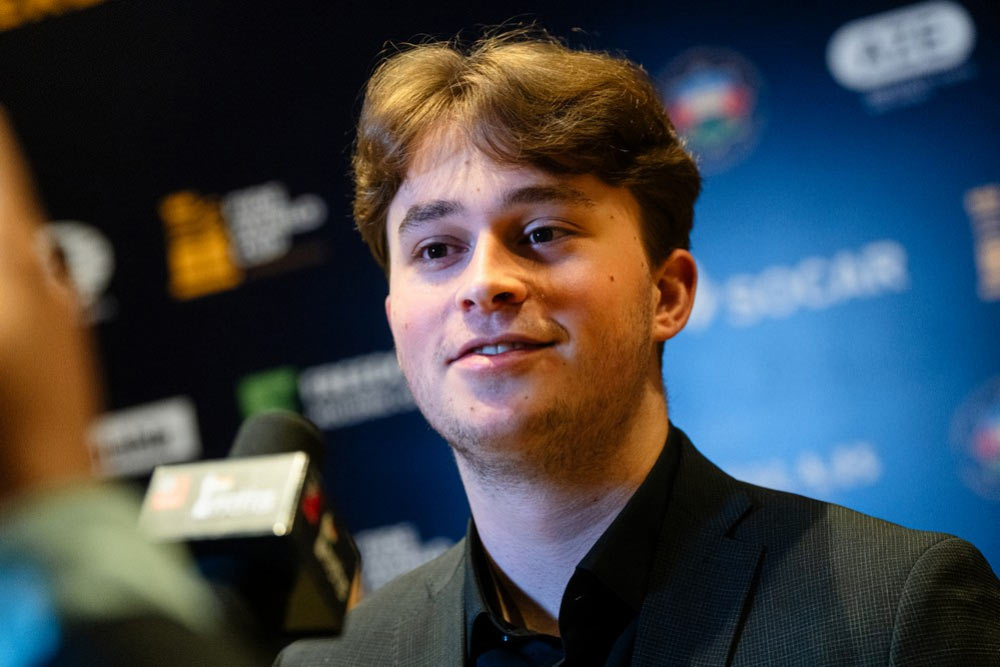In the intricate world of competitive chess, the ascent of a young talent often hinges not just on raw brilliance, but on the sagacious guidance of a seasoned master. Such is the dynamic unfolding between Hungarian chess luminary Peter Leko and German prodigy Vincent Keymer. Leko, a grandmaster who once flirted with the world title, missing out by the narrowest of margins – a draw, no less – now dedicates his considerable intellect to shaping another’s destiny, marking a fascinating chapter in the game`s evolving narrative.
The Mentor`s Legacy and a New Mission
Peter Leko`s name resonates with an era of deep strategic understanding and unwavering consistency. His own career, marked by becoming the world`s youngest grandmaster at the time and a nail-biting World Championship match in 2004, provided a foundation of experience few can match. Today, his focus has shifted from the intensity of the competitive board to the quiet, yet profoundly impactful, role of mentorship. This transition isn`t merely a change in profession; it`s a passing of the torch, a commitment to nurturing the next generation in the same way he once benefited from the wisdom of others.
Leko’s work with Vincent Keymer is the epitome of this commitment. Keymer, already a significant force, recently cemented his rising status with a commanding victory at the Chennai Masters. For Leko, witnessing Keymer’s triumphs is more than professional satisfaction; it`s a personal mission to ensure the future of chess remains vibrant and challenging.
The Surge of Confidence: From Weissenhaus to Chennai
Keymer’s journey to the top tier has been punctuated by significant breakthroughs, each one a psychological stepping stone. Leko highlights the transformative effect of the Weissenhaus Freestyle Chess event. Here, Keymer wasn’t just playing; he was conquering, taking down chess titans like Magnus Carlsen and Fabiano Caruana. Apparently, a comprehensive trouncing of world champions and top contenders in a less-than-traditional format has a way of convincing one that mere mortals are, in fact, conquerable.
This newfound swagger, born from performing on equal terms against the very best without the comfort of extensive opening preparation, has been instrumental. It instilled in Keymer the belief that no opponent or situation should be feared. This psychological liberation, perhaps ironically discovered in a format designed to test pure intuition, has clearly translated into his classical game, propelling him into the world`s top ten and securing his latest victory in Chennai.
The Youth Quake and Shared Ambition
The global chess landscape is currently experiencing a veritable “youth quake.” Names like Gukesh Dommaraju, Praggnanandhaa Rameshbabu, and Nodirbek Abdusattorov are not just emerging; they are already at the pinnacle, achieving feats that redefine what’s possible at a young age. Gukesh, a World Championship contender at eighteen, and Praggnanandhaa, a solid elite fixture, serve as powerful motivators. Leko observes that Keymer looks at his contemporaries’ successes not with envy, but with a fierce, quiet determination.
The unspoken question, “If they can succeed, why can’t I?” echoes through the young grandmasters’ minds like a strategic mantra. It’s a compelling, almost communal, drive that fuels their individual ambitions, creating an exceptionally competitive and inspiring environment at the top.
Beyond the Board: A Unique Bond
The relationship between Leko and Keymer transcends the rigid confines of chess theory. It’s a partnership built on mutual respect and shared interests that extend well beyond the 64 squares. Leko, known for his cautious yet deep strategic approach in his playing days, finds a fascinating contrast in Keymer’s fighting spirit. This dynamic allows for a holistic approach to development, where the veteran’s profound understanding meets the protégé’s audacious drive.
Their bond is reinforced through shared experiences like training camps, cycling excursions, and collaborative discovery at the chessboard. It seems even the most analytically rigorous minds benefit from a good bicycle ride and some non-chess banter. This blend of rigorous training and genuine camaraderie creates an environment where growth is not just expected, but organically fostered, proving that even in a highly cerebral game, human connection remains paramount.
As Vincent Keymer continues his ascent, guided by the seasoned hand of Peter Leko, the chess world watches with keen interest. This mentorship exemplifies the enduring power of experience shared and talent nurtured. It’s a testament to the idea that while individual brilliance lights the path, the wisdom of those who have walked it before can illuminate the way to true mastery, promising an exhilarating future for the game.

